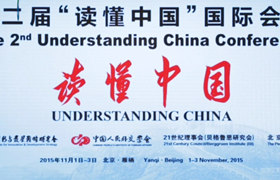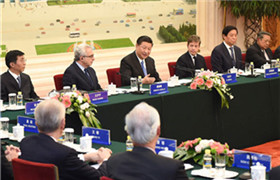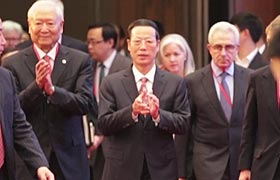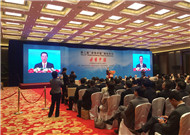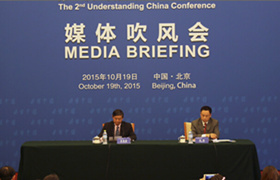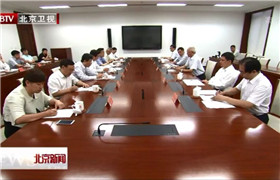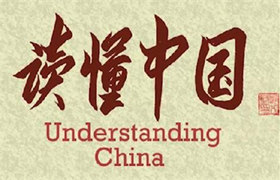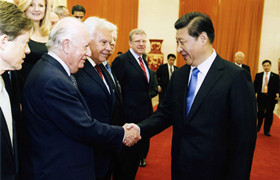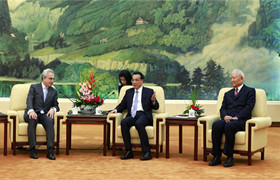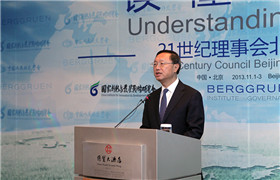- HOME--> Research
-
Social Governance in China in the 21st Century
Source:
We have entered the second decade of the 21st century. By 2020, China will take another leap forward, fully graduated from a low-level well-off society of incomplete and unbalanced development a decade ago and celebrating the great change into a well-off society of a higher level for the benefits of over one billion people. This radically requires all of us, including our institute, to be more conscientious about the fundamental theme of our efforts, namely the historical mission of building a well-off society in an all-round way by 2020. In comprehensively advancing the socialist economic, political, cultural, social and ecological development, we must strive for systemic engineering in building a harmonious socialist society with integrated physical, mental, political, social and ecological civilization.
Social governance is an issue that is not only important in China’s social civilization but also closely linked with the civilization in the rest four aspects. The essence of the so-called "social governance" is, based on the requirements for the goal of building a harmonious socialist society, to utilize administrative, economic, cultural, legal and other means to ensure the social life of our country, especially that of the vast majority of people at the grassroots level, to operate in a more harmonious, stable, active and orderly way. If not appropriately addressed, this issue will hinder our great cause of socialist modernization. With a population of 1.3 to 1.5 billion, China's social governance should be done in a historical process where major social changes emerge, including industrialization, informatization, urbanization, marketization and internationalization, backed by the concrete material basis of firmly adherence to the central principle of emancipating and developing social productive forces so as to create a "more active, orderly and harmonious" social scenario. This is a major cause and an underlying project, which paves the way for the goal of building a well-off society of a higher level in an all-round way for the benefits of over one billion people by 2020. Social governance in nature is about community construction and social restructuring. Our study strives to enhance the relevance against generalization, with focused efforts in addressing the hotspots and concerns of people and the key aspects of development, seeking orchestrated and progressive illustration and covering the integration of economic, political, cultural and social reform.
The resolution on the Fourth Plenary Session of the Sixteenth Central Committee of the CPC indicates the goal of building social governance in China with extensive public engagement by requiring for the first time to develop a social governance pattern characterized by the CPC leadership, government accountability, community collaboration and public engagement. Over the past few years, local practices in social governance have produced findings to varying degrees all over the country, covering both urban and rural areas. We are ready to cooperate with localities regarding case studies in theory and in practice for the lessons learned. At the same time, we expect to collaborate with universities or research institutions, where we can study the theories and practices abroad in social governance and follow the suit accordingly.
-
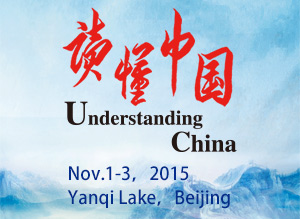
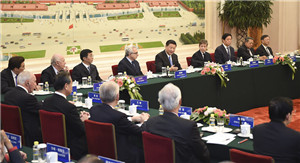
The 2nd "Understanding China" ConferenceOn November 1~3, 2015, the 2nd “Understanding China” Conference was held in Beijing Yanqi Lake International Conference Center. Zhang Gaoli, Vice Premier of the State Council, attended the opening ceremony.
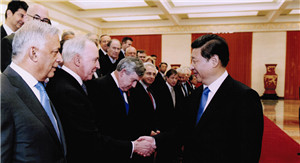
The 1st "Understanding China" ConferenceOn November 1~3, 2013, the 1st “Understanding China” Conference was held in Beijing, which was cosponsored by China Institute for Innovation & Development Strategy (CIIDS), Chinese People’s Institute of Foreign Affairs (CPIFA), and Berggruen Institute on Governance.
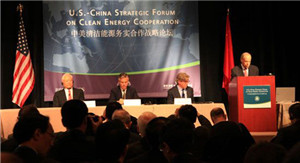
The 2nd U.S.-China Strategic Forum on Clean Energy CooperationWith the “Prospects for U.S.-China strategic cooperation in next decade” as its theme, the forum dwells on the implications of U.S.-China cooperation from the strategic perspective of coping with global challenges and maintaining world peace.
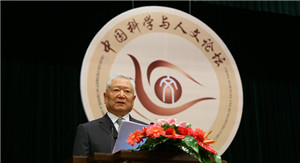
The China Sciences and Humanities ForumCo-initiated in April 2003 by renowned Chinese scientist Mr. Lu Yongxiang and influential political strategist Zhen Bijian, China Sciences and Humanities Forum was jointly hosted by Graduate University of Chinese Academy of Sciences (GUCAS) and the Higher Education Press.

